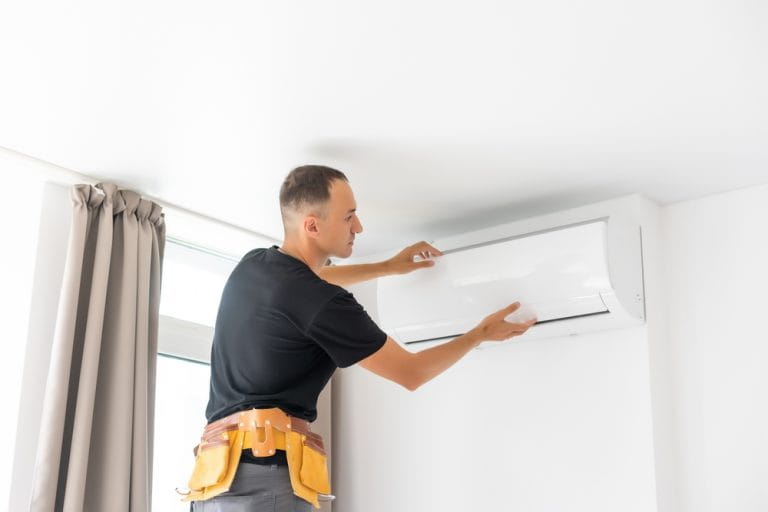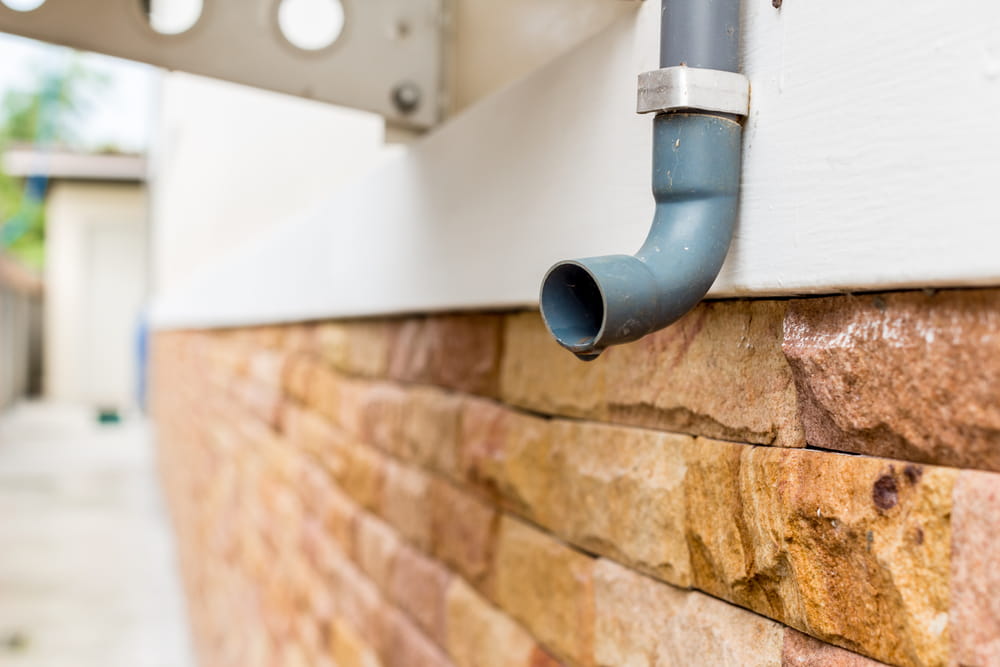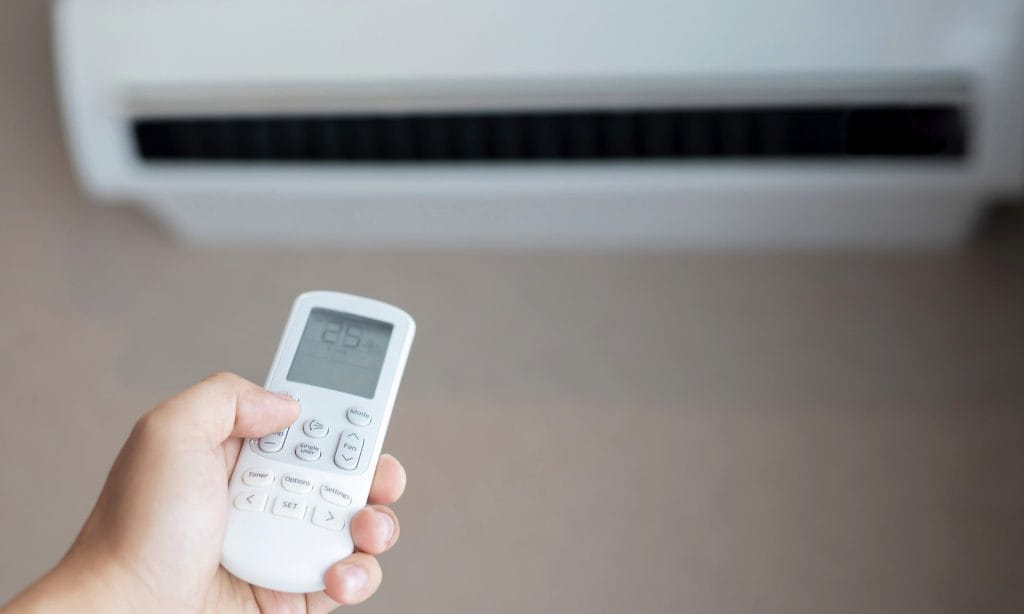When the air conditioner is running, the water created by condensation is expelled outside through a dedicated drain pipe. If this does not happen, it is likely that there is a blockage that needs to be addressed. Let’s explore the possible reasons.
Why is my air conditioner not dripping water?
Condensation forms when the air conditioner is on due to the interaction of air with the condenser, the internal part of the unit that allows the refrigerant gas to be transformed into cold air.
This is a completely normal process that also occurs when the dehumidifier mode is activated. The condensation typically collects inside the split unit, the indoor unit mounted on your home’s walls.
It is no coincidence that the same indoor unit contains a condensate collection tray beneath the split unit, which expels the water outside through the drain pipe. If this isn’t happening, the issue could be due to several potential causes:
- a possible malfunction of the drain pipe;
- wear and tear of the condensate collection tray;
- a blockage in the drain hole;
- damage to the split unit.
What happens when the air conditioner does not drain?
If the air conditioner is not properly draining water, it indicates that there is a leak occurring somewhere else in the system.
To address this issue, it is crucial to rely on the expertise of a skilled technician who can first identify the problem among the potential causes.
- If the issue stems from a malfunction in the drain pipe, it is essential to check for any blockages or clogs. A simple wire can be used to clear obstructions from inside the pipe, but care must be taken not to damage it.
- If the problem is with the condensate collection tray, you will need to assess whether it should be replaced due to wear and tear or if a thorough cleaning will suffice before reinstalling it correctly.
- In the case of a damaged split unit, the technician’s supervision is especially important, given the split unit's role in distributing cool air throughout the rooms. An improper repair could completely compromise its proper functioning.
- Another potential reason for the air conditioner not draining water properly could be a blockage in the drain hole near the drip tray. In this case, the internal surface should be cleaned with a damp cloth.
Regular maintenance of the system is highly recommended, especially before turning it on for the summer after a long period of inactivity. This is always the best strategy to avoid any unpleasant surprises.
How to drain water from an air conditioner
There are few methods for draining the water accumulated by an air conditioner, and the most suitable one depends on the type of air conditioner.
- If possible, the drainage can be directed straight into the sewage system. This is undoubtedly a convenient solution, as it eliminates the need for manual emptying when the water level rises. However, connecting the drainage system to the sewage line requires additional work.
- Another simple solution is to collect the water in a tank. In this case, you need to monitor the water level, which varies depending on the air conditioner's usage and technical specifications.
- There is also the option of a condensate evaporator. This device converts the condensate directly into vapour. It is an additional component that can be installed with the cooling unit, though it comes with extra costs.
Before deciding, consider the air conditioner's placement — whether it is indoors or outdoors, and especially how close or far it is from a drainage point.
How much water comes out of an air conditioner?
It is difficult to determine the exact amount of water an air conditioner should release, as it depends on the amount of condensation the unit produces. Factors such as system settings, humidity levels, and operating time significantly influence this.
It’s estimated that a residential air conditioner can produce between 1 and 2 litres of condensation per hour, but this is just a standard estimate influenced by some variables.
- Humidity. In highly humid environments, the air conditioner may generate more condensation because the air contains more water vapour, which is liquefied when it comes into contact with the cold surfaces inside the unit.
- Indoor temperature. In extremely hot conditions, the air conditioner has to work harder to cool the air, which increases condensation production.
- Unit size. Air conditioners of various sizes have different cooling capacities, and therefore, they produce varying amounts of condensation.
- Operating time. An air conditioner that runs for extended periods will produce more condensation than one that operates for shorter times.











































